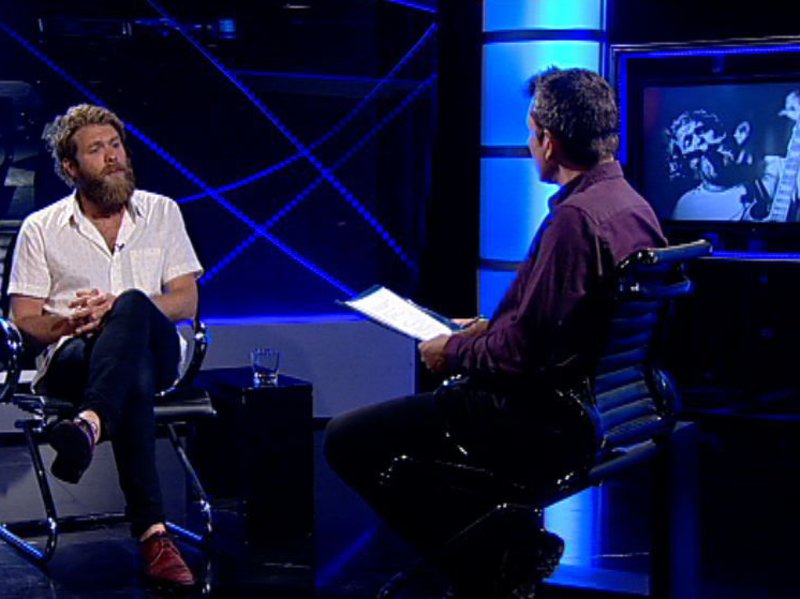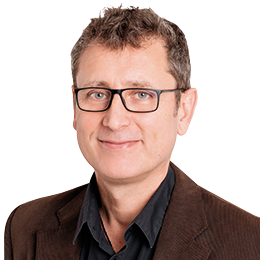Opinion
Music as communication
You are a singer-songwriter and a citizen of the world, originally from New South Wales in Australia, according to your website.
I'm not a big fan of borders. This is a place that we all share together and I feel very fortunate to be able to travel so much with my music.
You have travelled a lot since you left Australia.
I did some touring in the States, in New York, Los Angeles and Texas last year. I recorded my last record in LA with Atoms of Peace and Thom Yorke. It was a great experience to work with them; they are great names in music and wonderful musicians. I also lived in London and Paris, and last year I moved to Barcelona. Now I live in Gràcia with a very dear friend from Paris.
Why Barcelona?
It just lets me breathe. I like the feeling of absolute freedom it gives me and the vitality of people. It's frenetic, busy and energetic.
How did you become a musician?
I was born in a house where they took me to church every Sunday. And when everybody finished up and went for a cup of tea, there was a stage full of instruments, and that was my playground. It was a great opportunity and soon playing music became a need for me. I used to steal my sister's guitar and played everything from blues to Nirvana, Nathan Kaye, Neil Young... It became a passion and there was no way that I could not do it. I left school very young and became a carpenter. Slowly but surely concerts and music took over and it's very rare that I pick up a hammer, I only pick up the guitar now these days.
What music genre do you play?
I really focus on music, never on a scene or a genre. It's too important for me to label it. Of course, it's folk blues, it's rock... I can easily describe it, but I never think about that when I am writing a song. You've got to be brave and experiment with music.
What inspires you?
Hearing Screamin' Jay Hawkings for the first time, Edith Piaf, poets such as Arthur Rimbaud, it's very diverse. When I was in Paris I also sang in French, it came naturally to me, and the same happens here; language is a passion for me. In my opinion, priority number one for human beings is communication. Now I am also diving into a lot of Flamenco. I am finding all of these amazing artists.
You've been touring for almost two years, and have just came out of a tour of Spain with your band, The Outlaws.
It's a guitar, bass and drums band, and this year we've been so lucky to have new members from Catalonia, like Quico Tretze. I first met Quico in London and he said to me after a concert: “You have to come to Barcelona.” I am really enjoying this special time of having a home here in Barcelona and I am writing for my next record. And I have more concerts coming up this year, in Catalonia and Spain.
How do you write your songs?
You have to open the window for the gust of wind to come, you have to be ready for it. It's like meditation; you have an understading of your voice and instrument and it's not about the subject, it's about the feeling and your voice. I use an old typewriter I found in the flea market at the Encants.
Your first album was released in 2011, and you had more success with Exits in 2014.
Releasing the second album I guess has been a success, and the idea behind the first one is that you have to live a life that allows you to exercise a certain form of release. Exits was contemplating the many ways we see them, either physically or in personal relationships. My main prorogative was that if there's a glass half-full or half-empty, why not an entrance instead of an exit? Entrance holds no memory and exits take something with you, the scars or the memories of a chapter in your life, and you don't have that with the next door you walk into.
Your video, Shake it, was nominated by Rolling Stone magazine as one of the best videos of the year.
It's the result of a collaboration between the director, the rest of the team and myself; it was very collaborative. My idea of the ballerina in the junk yard tried to show two extremes and to make a contrast between a brutal, greedy side and very sensitive and delicate side of music.
Your music and yourself seem to be full of extremes, maybe that's why it's hard for you to say what your music is?
I've been lucky enough to get to this point, to be given a microphone and be able to do music, and it's not a moment that you cannot give a hundred percent of yourself to, and that's what I am trying to do.
Steve Smyth Every Friday afternoon on El Punt Avui Televisió, Barney chats with an English-speaking expat. For this month's interview he had a chat with Australian singer-songwriter Steve Smyth.
Leave a comment
Sign in.
Sign in if you are already a verified reader.
I want to become verified reader.
To leave comments on the website you must be a verified reader.
Note: To leave comments on the website you must be a verified reader and accept the conditions of use.


